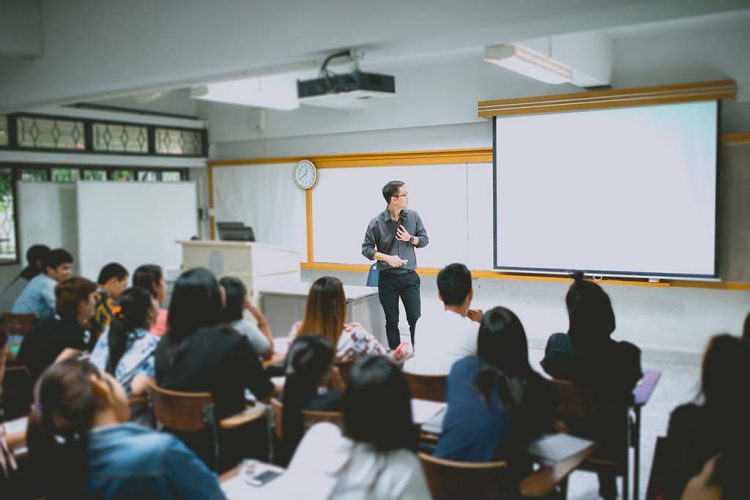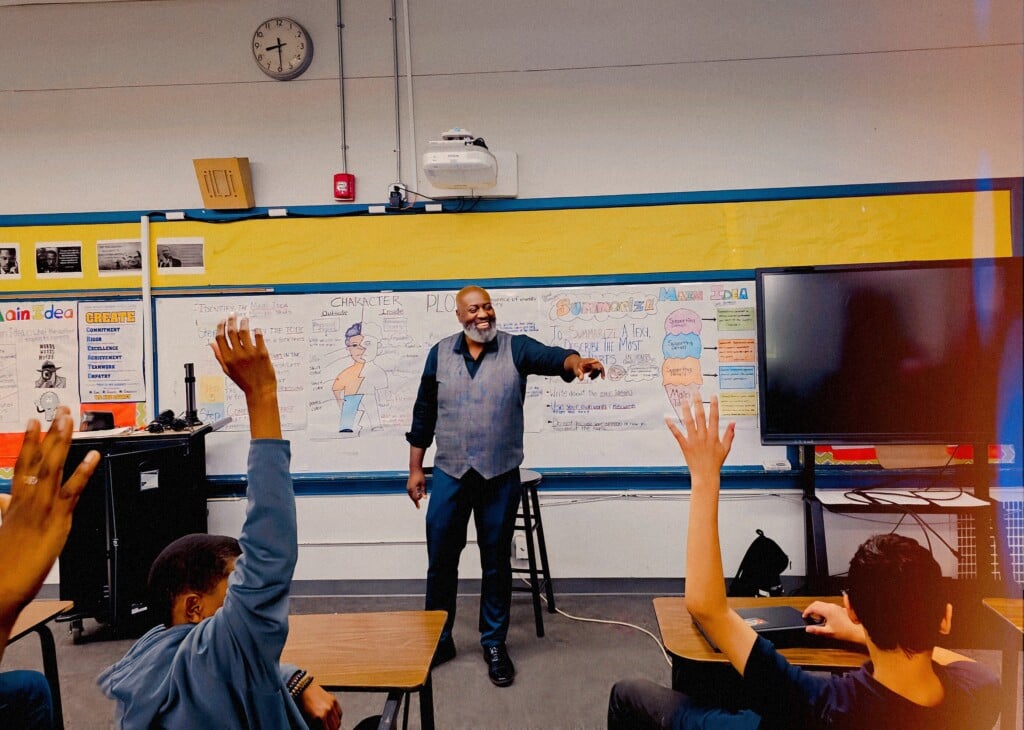Expert Primary Science Tuition Singapore for Understanding Complex Concepts
Expert Primary Science Tuition Singapore for Understanding Complex Concepts
Blog Article
Discovering the Different Teaching Strategies in Main Scientific Research Education And Learning Today
Inquiry-based learning, hands-on experiments, and the combination of technology are redefining exactly how educators involve young minds. Furthermore, joint techniques and set apart direction are being employed to provide to the diverse needs of pupils, improving both interaction and understanding.
Inquiry-Based Understanding
Inquiry-Based Knowing (IBL) is a pedagogical approach that motivates students to check out scientific concepts through questioning, examination, and hands-on trial and error. This technique highlights the function of trainees as energetic individuals in their knowing, promoting vital thinking and analytic skills. By engaging with real-world concerns, students become motivated and interested, which improves their understanding of scientific principles.
In IBL, instructors act as facilitators, assisting students as they navigate their queries as opposed to providing info directly. This student-centered strategy enables for differentiation, fitting various learning speeds and designs. Pupils establish abilities in formulating hypotheses, making experiments, and assessing data, which are critical for clinical proficiency.
In addition, IBL fosters collaboration amongst students, motivating them to share concepts and searchings for. This cumulative query advertises social skills and a sense of neighborhood within the class. Furthermore, the procedure of query urges strength, as trainees discover to welcome failing as a tipping stone toward understanding.
Hands-On Experiments
Hands-on experiments are an important part of efficient science education and learning, enhancing the principles of inquiry-based learning. These experiments enable students to engage directly with clinical concepts, fostering a much deeper understanding with experiential knowing. By manipulating products and observing results, young students can understand abstract theories in tangible methods.
Such tasks promote critical thinking and analytic abilities, as pupils assume end results, conduct experiments, and evaluate outcomes. This process motivates them to ask inquiries, refine their understanding, and develop a clinical mindset. Hands-on experiments can be tailored to varied learning styles, making sure that all pupils have the opportunity to engage meaningfully with the web content.
Additionally, hands-on experiments usually urge partnership amongst peers, advertising synergy and communication skills. Operating in teams enables trainees to share ideas, go over searchings for, and gain from each other, which boosts their total academic experience.
Incorporating hands-on experiments into the main scientific research educational program not just improves the learning atmosphere however additionally grows a lifelong interest in science. By proactively taking part in their education and learning, students are most likely to develop a passion for scientific questions that extends past the class.

Modern Technology Integration
Integrating technology into key scientific research education has become progressively essential in fostering pupil interaction and boosting learning results. Using digital tools, such as interactive simulations, virtual laboratories, and educational software, gives pupils with chances to explore clinical principles in innovative methods. These sources assist in a much deeper understanding of complicated subjects by enabling learners to picture and manipulate variables that would certainly be impractical in a traditional class setup.
Moreover, innovation assimilation urges customized finding out experiences. Trainees can proceed at their very own rate, taking another look at challenging principles via multimedia resources, which satisfy various discovering styles. This versatility not only supports specific development however likewise cultivates a sense of freedom in students.
Furthermore, technology works as a bridge to real-world scientific research, linking pupils with present study and professional payments. Access to online data sources and clinical journals expands pupils' viewpoints on scientific inquiry and cultivates crucial thinking skills.
Collaborative Discovering
Collective learning plays a crucial function in key science education and learning by promoting team effort and communication skills amongst pupils. This strategy urges learners to collaborate, share understanding, and involve in problem-solving, which enhances their understanding of scientific ideas. By taking part in group tasks, students discover to verbalize their ideas, pay attention to varied viewpoints, and discuss services, all of which are necessary skills in both scholastic and real-world contexts.

Research study suggests that collective learning can result in enhanced inspiration and involvement in scientific research topics, as trainees find satisfaction in common experiences (primary science tuition Singapore). Additionally, this technique prepares students for future joint ventures, outfitting them with the abilities essential for effective team effort in higher education and specialist settings. Inevitably, embracing collaborative knowing in primary scientific research education can significantly enhance the understanding experience and promote a deeper understanding of clinical query
Set Apart Direction

Separated instruction can materialize in different means, such as varying the material, processes, or items of understanding. As an example, educators might use tiered projects that offer differing levels of intricacy, enabling trainees to operate at their particular readiness levels. In addition, adaptable grouping approaches can promote collaboration amongst students with various abilities, promoting peer discovering.
Assessment plays a vital function in this method, as it educates guideline and assists teachers comprehend each student's special demands. Developmental analyses, such as quizzes and monitorings, can assist educators in readjusting their approaches to improve discovering outcomes. primary science tuition Singapore. Ultimately, by applying differentiated guideline in key science education and learning, teachers can grow a much more equitable and effective understanding environment, encouraging all students to reach their complete potential in recognizing scientific sensations
Final Thought
In summary, the diverse training approaches in primary science education, including inquiry-based learning, hands-on experiments, technology combination, joint learning, and separated guideline, collectively add to an extra efficient discovering atmosphere. These techniques promote essential reasoning, problem-solving abilities, and a much deeper comprehension of scientific ideas. By applying these strategies, educators can create engaging and pop over to this web-site supportive classrooms that deal with the diverse needs of pupils, inevitably fostering a lifelong interest in scientific research and enhancing scholastic accomplishment.
Inquiry-Based Learning (IBL) is an instructional method that motivates students to explore clinical principles via questioning, investigation, and hands-on testing.Joint knowing plays an essential function in key science education and learning by fostering team effort and interaction abilities amongst students.Study suggests that collective learning can lead to raised inspiration and interaction in scientific research topics, as pupils discover satisfaction in common experiences.In cultivating a comprehensive understanding atmosphere, separated guideline emerges as a vital method to suit the varied demands and capacities of trainees in key scientific research education and learning. Ultimately, by applying separated instruction in key scientific research education, educators can grow an extra effective and fair knowing environment, encouraging all trainees to reach their complete possibility in comprehending scientific sensations.
Report this page